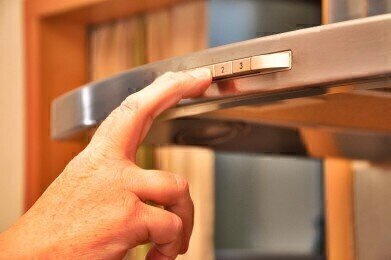Air Monitoring
How to Minimise Indoor Air Pollution During Lockdown
Jun 20 2020
There have been many column inches and televised news segments devoted to the environmental implications of coronavirus with regard to outdoor air quality, but what about that which we breathe inside our homes? There is abundant scientific evidence to show that indoor air quality is often even worse than that found in an external urban setting, so the fact that many people are confined to their homes almost all of the time at the moment could be a particular health concern.
That’s especially true given that many people have taken advantage of the increase in their leisure time to focus more on cooking and cleaning in their house or flat. Thanks to the latest techniques in monitoring airborne molecular contamination in indoor cleanroom air, we now know that both of these activities can be even more damaging to the air we breathe.
Having said that, it is not feasible or even advisable to abstain from either cooking or cleaning altogether, since both are important to maintaining a healthy lifestyle. However, there are certain precautions that can be taken to ensure that your exposure to harmful pollutants such as particulate matter (PM), carbon monoxide (CO) and volatile organic compounds (VOCs) is reduced as much as possible.
- Switch to electric. Although this step may not be possible for everyone, there are substantial benefits to using an electric cooker over a gas one, since they generally produce fewer amounts of toxic gases. If an electric oven is out of the question, reduce your reliance on it by using the kettle, microwave and toaster wherever possible.
- Ventilate! Ventilation is the key to dispersing pollutants in the home and improving air quality. If the temperature allows it, keep a window open in each room as often as you can, while it’s advisable to always use the range hood on your oven (if it has one). Cooking pots and pans on the rear burners can also increase the proportion of contaminants sucked up by the vent.
- Avoid bleach. Although very effective at cleaning surfaces, bleach is highly toxic in its own right and reacts with almost all other substances to become even more dangerous. When mixed with water, for example, it creates hypochlorous acid, which can react with dirt and dust particles or vaporise into the air and react with airborne ones. Never mix bleach with other cleaning agents.
- Increase the greenery. Plants need CO2 to breathe, meaning they can cancel out the carbon that you exhale and replace it with oxygen, thus improving cognitive function. They’re also natural absorbers of pollutants, especially those with large, hairy leaves or non-vascular plants like moss. Plants are also great at improving mood and morale, which is especially important during lockdown.
- Restrict use of cosmetics. Given that you’re unlikely to see others outside of your household (except for perhaps on video sharing platform calls), there’s no need to use personal grooming products like hairspray, aerosol deodorants and other cosmetics as much as you normally might. These items contain damaging contaminants which, if emitted in an enclosed space, can build to unsafe levels.
Digital Edition
AET 28.2 April/May 2024
May 2024
Business News - Teledyne Marine expands with the acquisition of Valeport - Signal partners with gas analysis experts in Korea Air Monitoring - Continuous Fine Particulate Emission Monitor...
View all digital editions
Events
Jul 30 2024 Jakarta, Indonesia
China Energy Summit & Exhibition
Jul 31 2024 Beijing, China
2024 Beijing International Coal & Mining Exhibition
Aug 07 2024 Beijing, China
IWA World Water Congress & Exhibition
Aug 11 2024 Toronto, Canada
Aug 25 2024 Stockholm, Sweden and online









.jpg)








